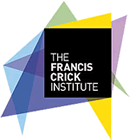This 4-year PhD studentship is offered in Dr Jeannine Hess' Group based at the Francis Crick Institute (the Crick).
Antibacterial drugs discovered several decades ago are the cornerstone of our modern healthcare settings allowing the treatment of previously life-threatening bacterial infections. However, with the emergency of pathogenic bacteria resistant to common antibiotics we are at serious risk of heading towards the pre-antibiotic era [1]. The newly established biological inorganic chemistry research group, led by Dr Jeannine Hess, is determined to develop new solutions to contain the upsurge of bacterial infections and antibacterial resistances. Moving beyond conventional drug discovery programs, we develop and apply target-based and structure-guided approaches (such as Fragment-Based Drug Discovery [2]) to generate drug candidates with new modes of action relying on the interplay of organic moieties and inorganic components [3].
We are looking for a highly motivated PhD student to design and apply new concepts to target microbial metalloenzymes [4] and to develop inorganic/organometallic chemical probes and antimicrobial drug candidates [5]. You will rely extensively on state-of-the-art chemical synthesis and analytical chemistry to generate new, rationally designed compounds with biological activity. You will also use and develop a variety of approaches for structural guidance to design the compounds and to test their biological activity. These include protein expression, a wide range of biophysical techniques such as differential scanning fluorimetry (DSF), ligand-based NMR spectroscopy, isothermal titration calorimetry (ITC), and in-vitro enzymatic assays.
Importantly, you will also help building and maintaining an open and collaborative lab atmosphere that nurtures scientific creativity and productivity, complementing our team on the mission towards new therapies against drug-resistant bacteria.
Candidate background
· You are motivated to work at the forefront of antimicrobial discovery and to develop new approaches and strategies to generate inorganic or organometallic compounds with interesting biological activity
· You have practical experience in organic synthesis, organometallic chemistry, medicinal chemistry, chemical biology, bioinorganic chemistry or any related field
· You are creative, have excellent communication skills, are enthusiastic about working collaboratively in a multidisciplinary research area and are interested in learning and adopting relevant techniques to achieve the research goals
Talented and motivated students passionate about doing research are invited to apply for this PhD position. The successful applicant will join the Crick PhD Programme in September 2021 and will register for their PhD at one of the Crick partner universities (Imperial College London, King’s College London or UCL).
Applicants should hold or expect to gain a first/upper second-class honours degree or equivalent in a relevant subject and have appropriate research experience as part of, or outside of, a university degree course and/or a Masters degree in a relevant subject.
APPLICATIONS MUST BE MADE ONLINE VIA OUR WEBSITE (ACCESSIBLE VIA THE ‘APPLY NOW’ LINK ABOVE) BY 12:00 (NOON) 23 March 2021. APPLICATIONS WILL NOT BE ACCEPTED IN ANY OTHER FORMAT.

 Continue with Facebook
Continue with Facebook



